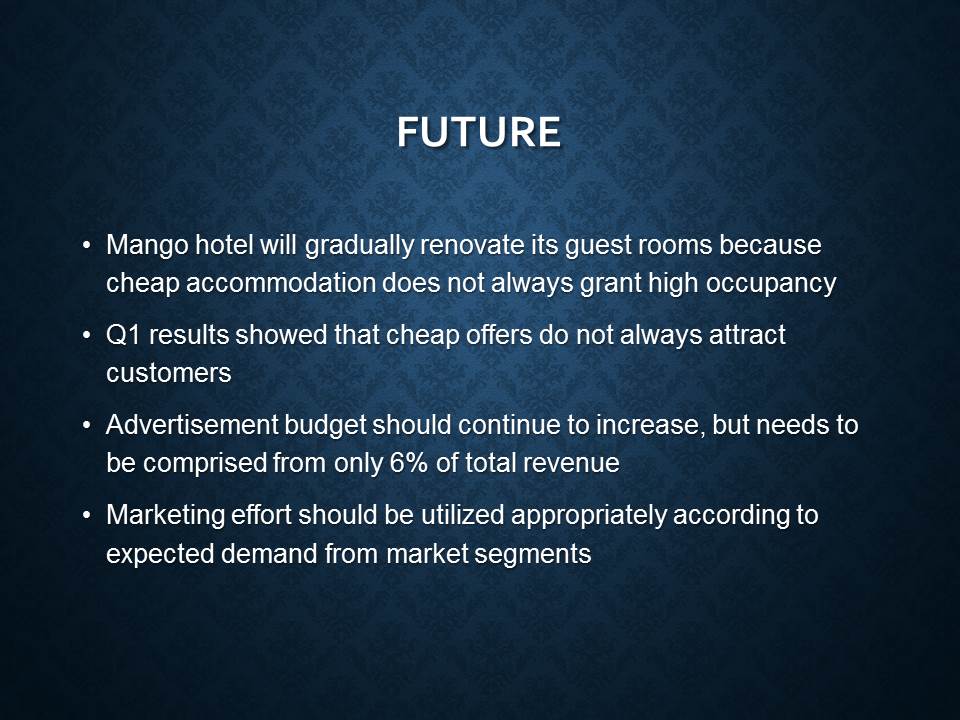About MANGO
- 4-star hotel;
- 250 rooms;
- 10-hr room service;
- Beach front;
- Paid in-room high speed internet.
Cozy hotel with an access to the sea and in-room internet available for additional charge. The hotel positions itself as a cheap option for leisure and business purposes.
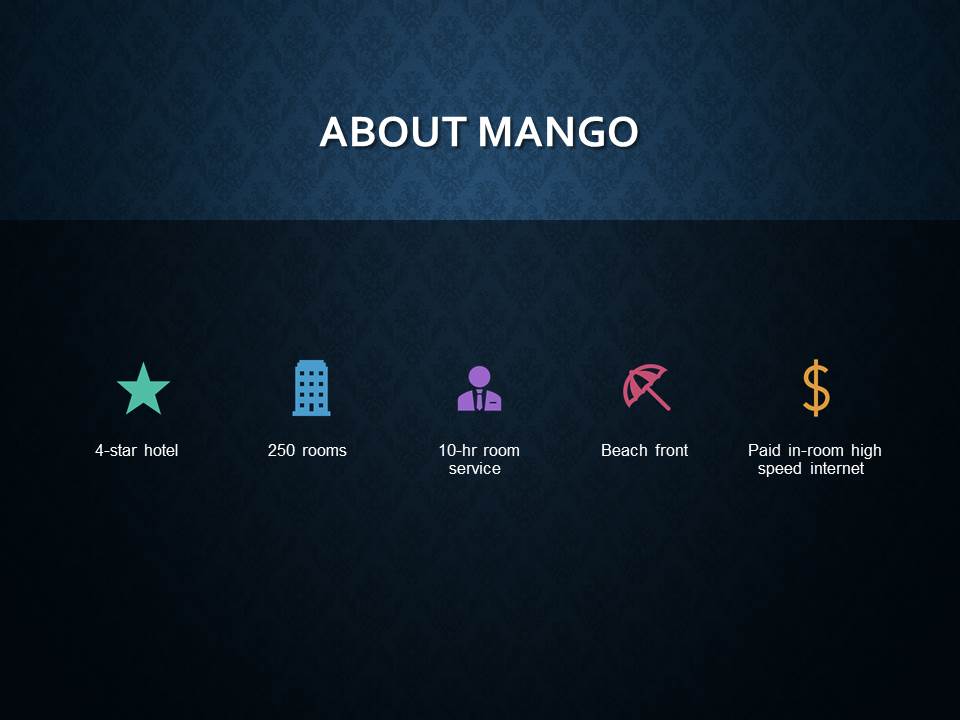
Other investment decisions
- All day restaurant;
- Swimming pool and pool bar;
- Sundries shop adjacent to the Front Desk;
- Self-serve business center;
- Meeting room for 250 persons, divisible into four sections;
- 1 board room space for 15 persons;
- 2 bay Exercise Room with 2 Cardio and 2 Lifting stations.
Investment into other facilities was made in order to improve guest experience at the hotel and be able to target additional market segments. For instance, the introduction of spa instantly attracted leisure travelers.
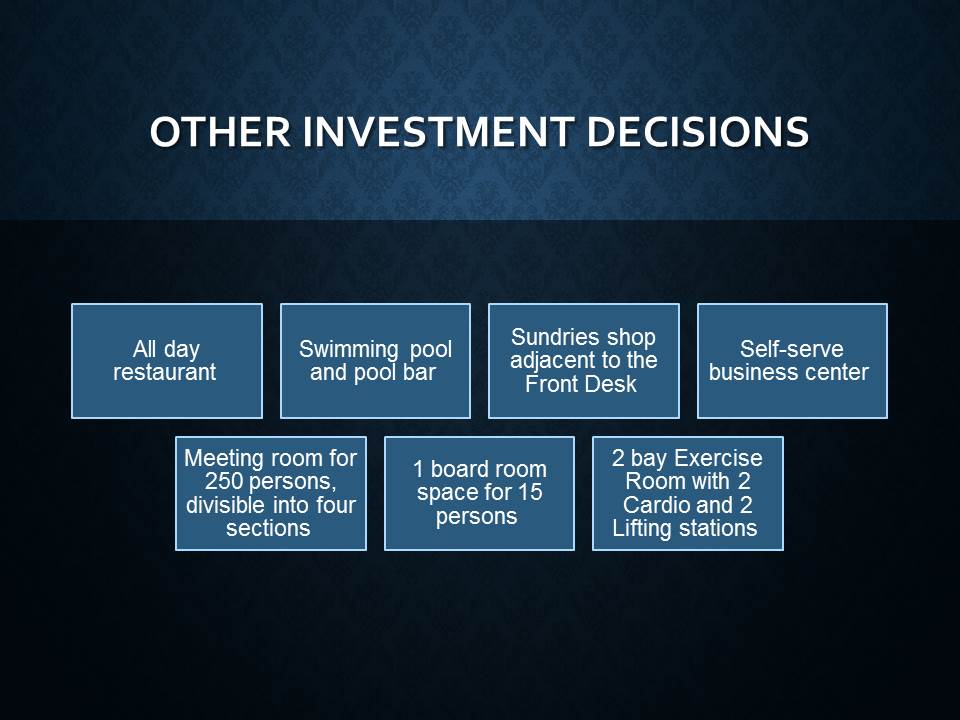
Market and Competitors
- Mango hotel can compete directly only with Pineapple, Strawberry, and Apple hotels;
- The rest of the companies have invested in guest room renovation;
- Prices should be kept at lower rates than hotels that have renovated rooms.
Only three hotels, besides Mango, do not have renovated guest rooms. Renovation results in a price increase, which means the rest of the hotels are considered to be pricier options. Therefore, the maximum price Mango can charge is limited by their pricing model.
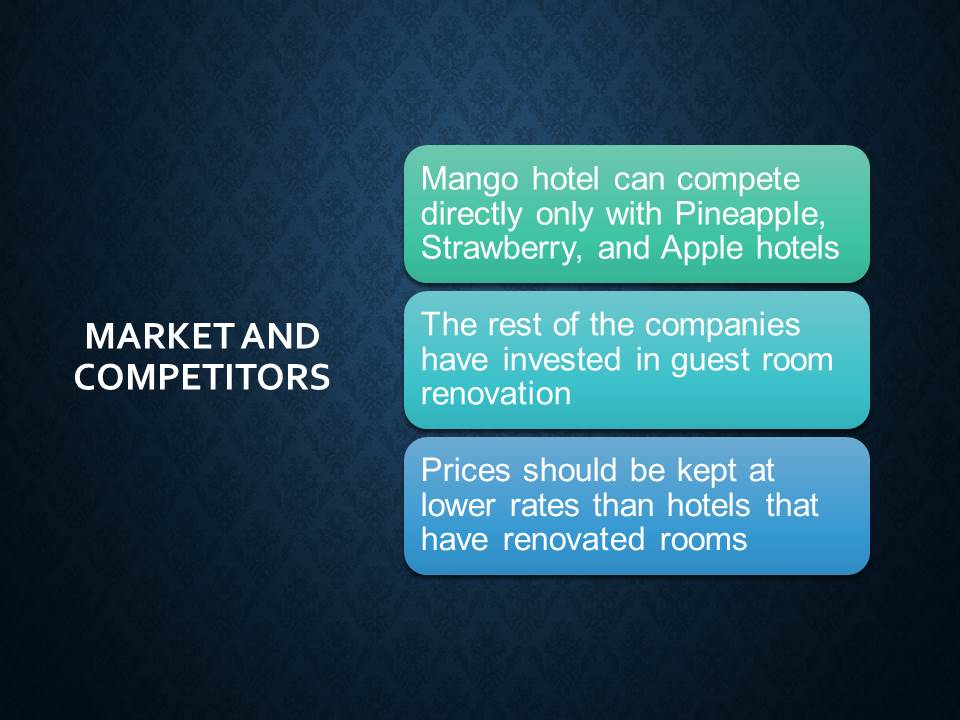
Strengths
- Have facilities to attract both leisure and business customers.
- Higher occupancy can be achieved by setting lower prices.
Mango can serve business customers, because it has a meeting room and a business center. Leisure customers can be attracted by the availability of spa and all-day restaurant.
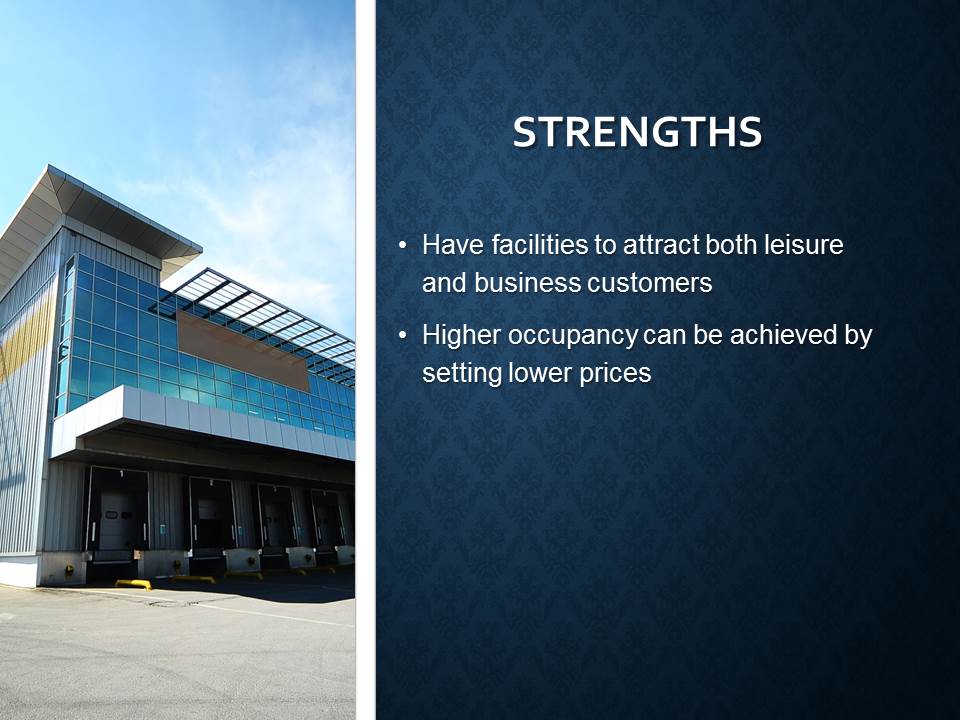
Weaknesses
- Net profit is limited by the absence of renovated rooms.
- Additional expenses are required to market available rooms.
Net profit cannot be increased unless Mango increases room prices. However, price adjustment opportunities are limited because of the absence of renovated rooms. Therefore, to keep occupancy at high level, Mango has to invest 6% of the net revenue in marketing efforts.
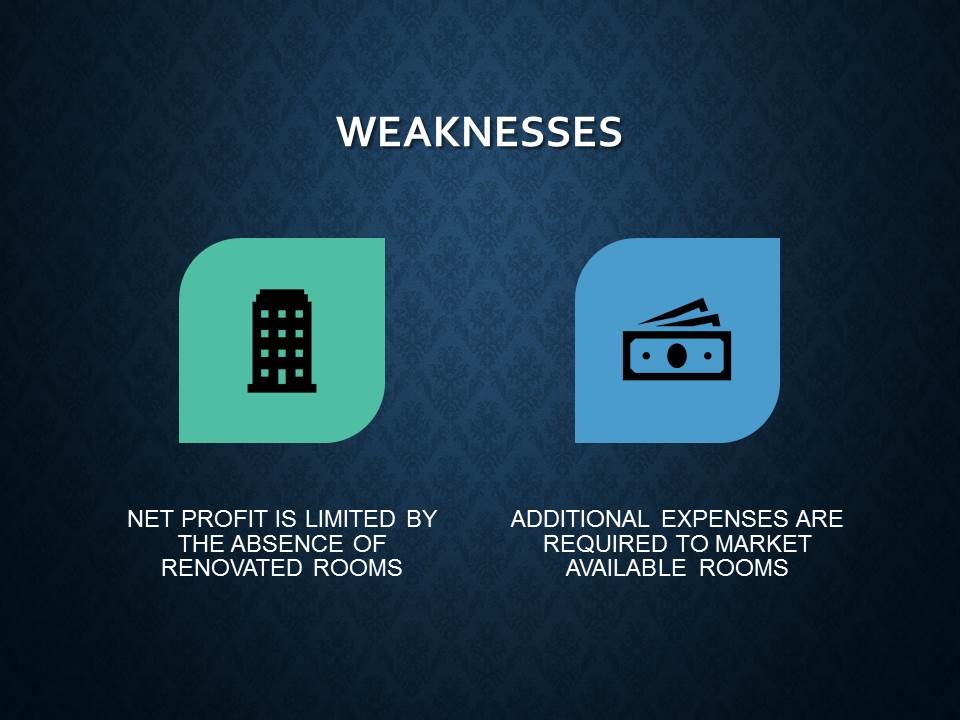
Opportunities
- Increased number of small groups of leisure travelers during spring.
- Cultural events during Autumn may contribute to occupancy.
- Construction projects and other events attract business travelers.
Mango can operate at its full capacity throughout the whole year. In spring, demand from leisure travelers and small groups is higher, while the number of business travelers is expected to rise in Autumn.
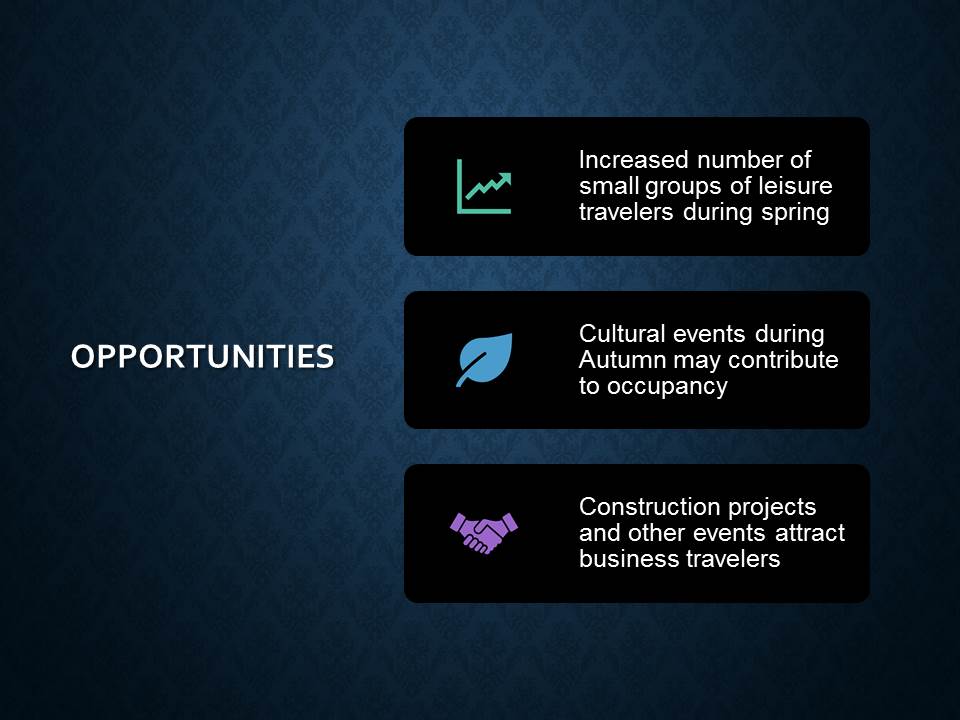
Threats
- Hotels with renovated facilities are more attractive.
- Discounted airflight tickets may contribute to travelers’ budget, thereby allowing them book accommodation in pricier hotels.
Competition is stiff on behalf of hotels that have renovated rooms. When the average price of an air ticket decreases, more expensive hotels may become a suitable option for budget travelers, thereby deteriorating Mango’s occupancy.
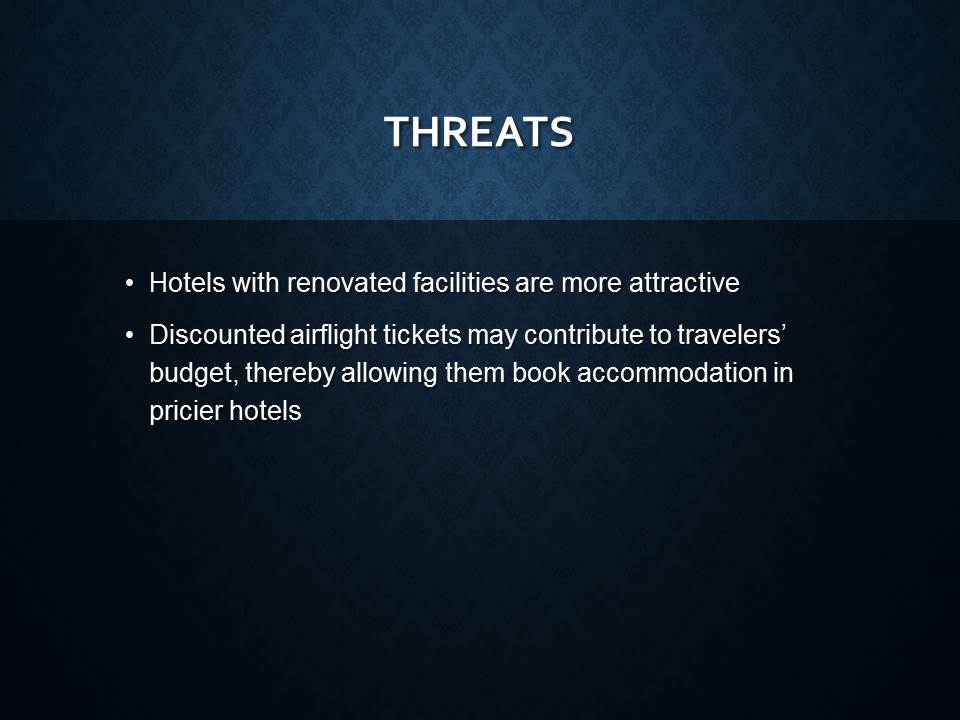
Current Financial Performance
- Profitability increased from 1.2% to 13.7%.
- Transaction costs went down from 10.1% to 8.9%.
- Occupancy has increased from 55.5% to 66%.
- Revenue per available room decreased (92.89 in Q1 and 92.69 in Q4).
Despite a slight decrease in RevPAR, Mango has been operating well in terms of financial performance. Profitability increased substantially in Q4 compared to Q1.
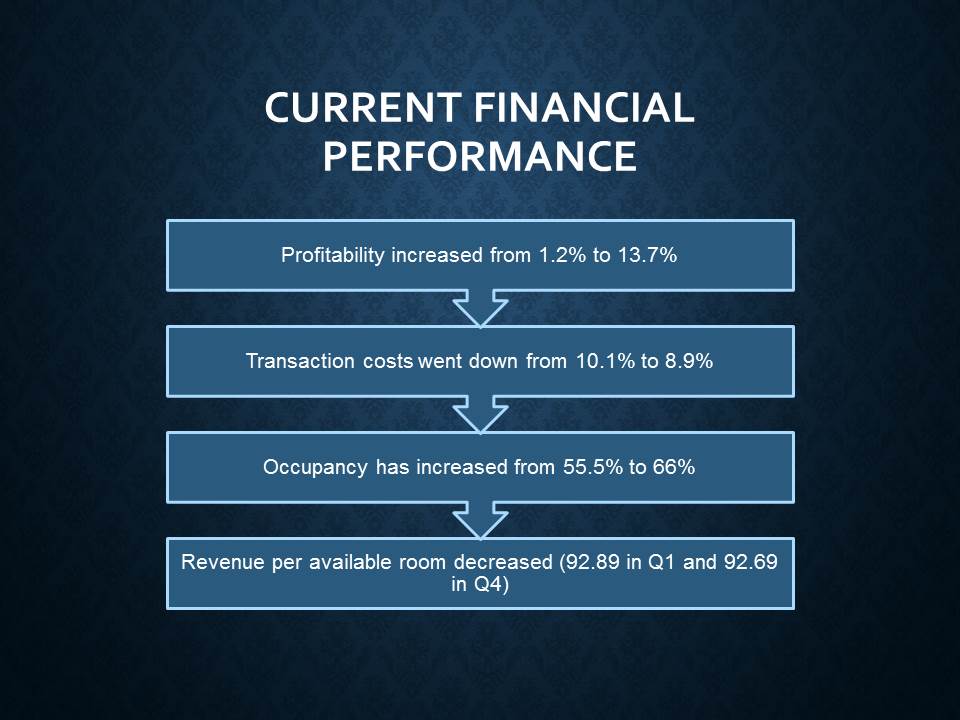
Marketing Strategy
- Focus on business and leisure customers, along with small-group travelers;
- Lower prices in Q1 to expand into the new market;
- Variable rates for W/D and W/E starting from Q2;
- Increased prices on all rooms in Q3;
- Continuous increase of advertisement budget.
Q1 marketing strategy was a failure, because cheap prices did not grant the hotel high occupancy rates. As a result, Mango suffered a loss in terms of net profit. However, starting with Q2, Mango has introduced variable pricing and adjustments based on market and segment demand.
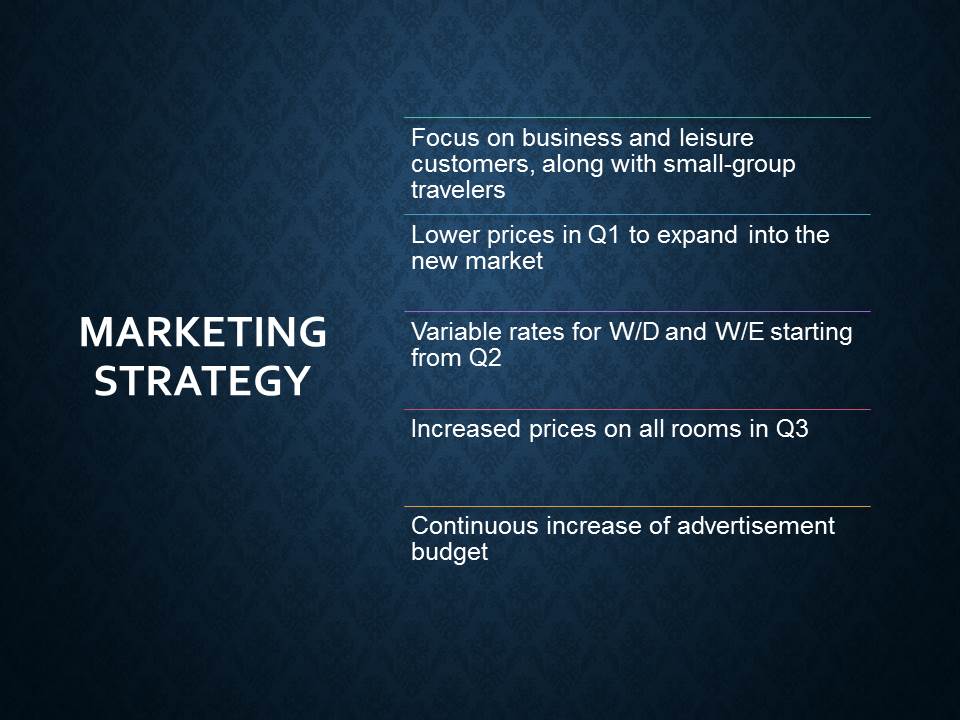
Segmentation and Distribution
- Throughout the year, Mango hotel has focused on both business and leisure customers;
- In Q1, the hotel opted for corporate contracts;
- Suffering a net loss, the hotel switched to direct distribution and marketing;
- Transaction costs have been lowered;
- In Q4, the majority of advertisement budget will target business customers, as the number of leisure travelers is expected to decrease.
Mango has pursued direct channel distribution because transaction costs can become a burden if a hotel does not have any other means of selling other than third-party services.
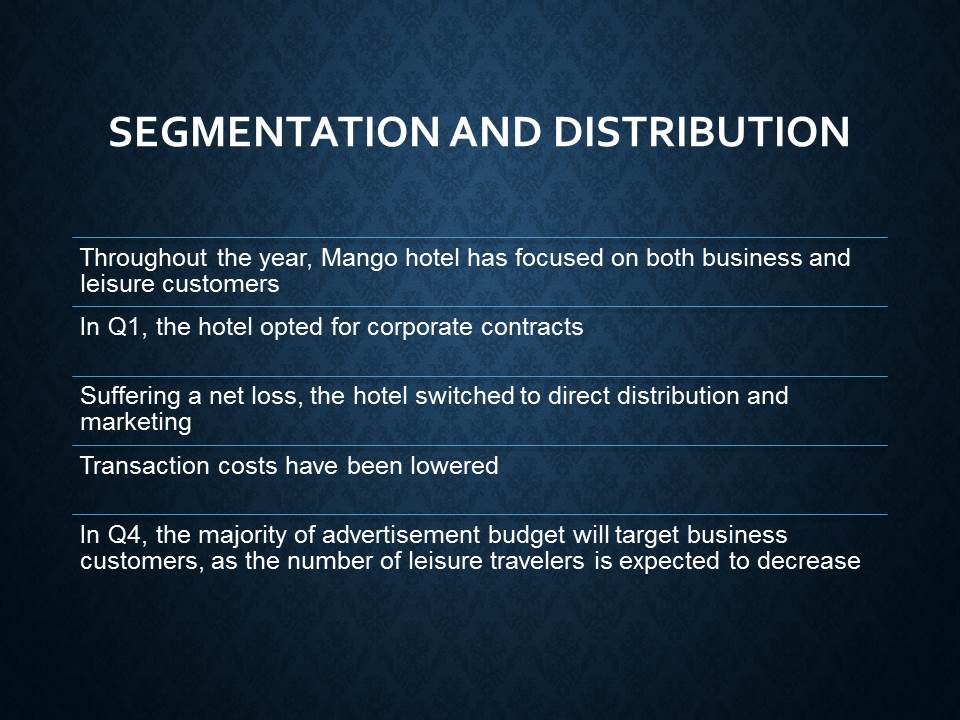
Pricing Strategies
- Q1 – low prices that do not vary between weekends and weekdays.
- Q2 – prices are continuously adjusted based on supply/demand reports.
- Q2 – W/D and W/E pricing strategy is implemented, which ensured an increase in net profit.
- Q3 – increased prices after fully entering the market.
- Q4 – further increase in prices due to expected increase in demand.
When Mango first entered the market, it attempted to win competition by offering the cheapest accommodation. However, the absence of pricing model resulted in low occupancy rates.
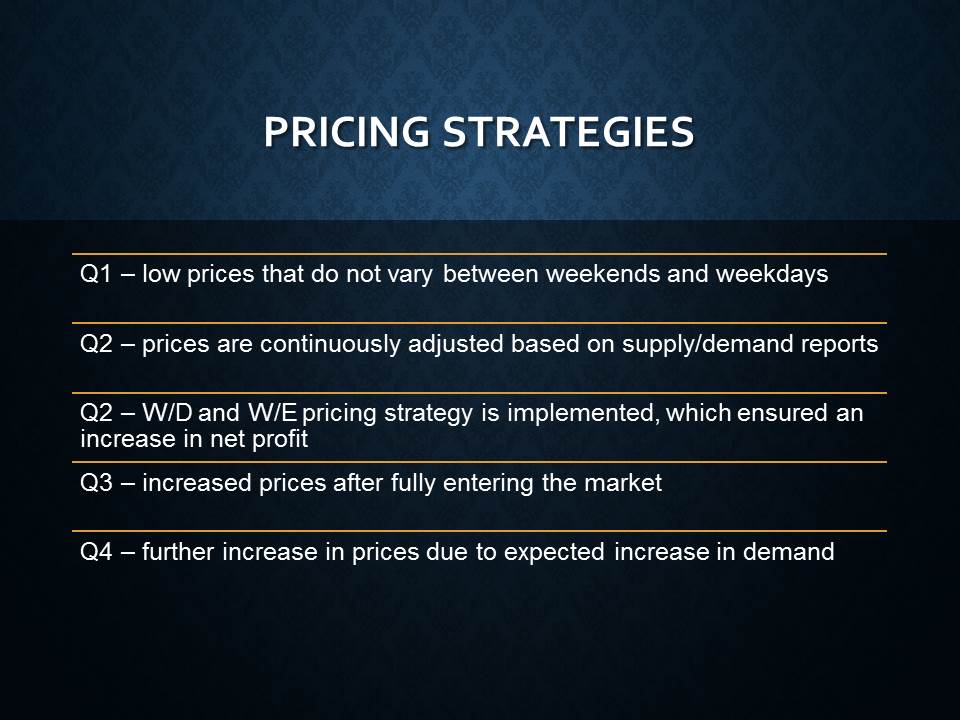
Analysis
- Q1 was the most challenging quarter, but Mango hotel has been improving its position on the market throughout the year.
- Market share increased as a result of effective investments.
- Building specific facilities, such as spa and business center, has allowed the hotel attract customers from other segments.
- Pricing model is significant in the context of profit maximization.
- Prices should be adjusted based on market supply and demand.
- Transaction costs may impact net profit. Therefore, direct channel sales was preferred.
After making several mistakes in the beginning, Mango is becoming a competitive player in the hospitality industry.
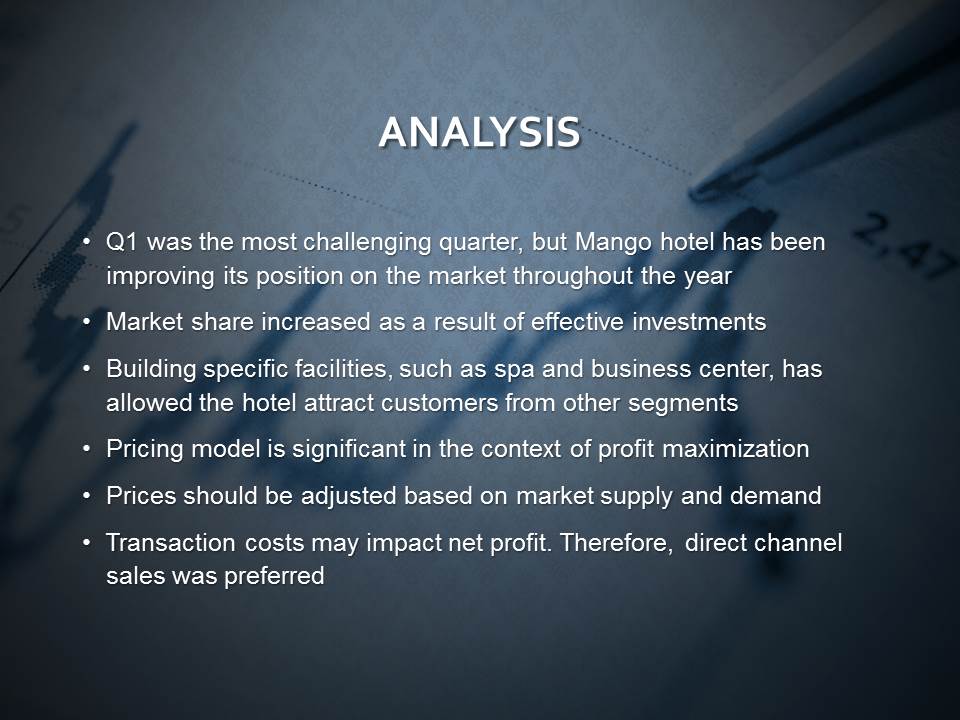
Future
- Mango hotel will gradually renovate its guest rooms because cheap accommodation does not always grant high occupancy.
- Q1 results showed that cheap offers do not always attract customers.
- Advertisement budget should continue to increase, but needs to be comprised from only 6% of total revenue.
- Marketing effort should be utilized appropriately according to expected demand from market segments.
To be able to compete with pricier hotels, Mango needs to renovate its rooms. Therefore, the management team should invest into renovation in a gradual fashion. As a result, the hotel will be able to adjust its pricing model to accommodate more expensive options. Mango has focused on business and leisure customers, and until Q4, marketing budget has been equally distributed among these market segments. However, budget distribution should be based on expected demand.
